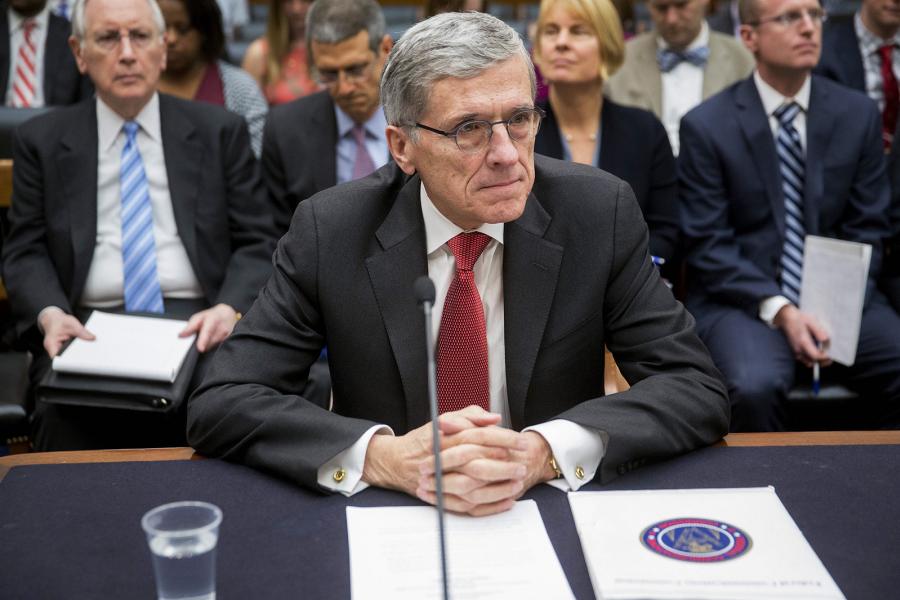
Here’s Where Things Stand on the FCC’s Set-Top Box and Broadband Privacy Regulations
The Federal Communications Commission (FCC) had a busy summer. Chairman Tom Wheeler’s aggressive regulatory agenda encountered a court victory regarding net neutrality and a defeat to its municipal broadband order, which the Sixth Circuit held exceeded FCC’s authority to preempt state laws limiting municipal broadband.
This morning, the Senate Committee on Commerce, Science and Transportation will hold an oversight hearing with all five FCC Commissioners. Committee Chairman Senator John Thune (R-S.D.) in anticipation of the hearing said:
With the FCC considering significant new rules affecting consumer privacy, cable service through set-top boxes, and other issues impacting our economy, effective collaboration and informed decision making at the commission couldn’t be more important.
Back from the August Congressional recess, it is important to set the table as to where the two issues Senator Thune highlighted currently stand—the commission’s proposed Set-Top Box and broadband privacy rules.
FCC’s Proposed Set-Top Box Rule
Chairman Wheeler earlier this month released a fact sheet announcing that the commission intends to hold a final vote on a revised version of its proposed Set-Top Box rule. In February, the FCC released its proposed rule which would require cable and satellite operators to provide their content and data to third-party set-top box providers in order to make the market for cable boxes more competitive. Early critics of the plan, including those in the entertainment and telecommunications industries, panned the proposal for failure to protect copyright, consumer privacy, and advertising and licensing agreements.
During a July House Communications & Technology Subcommittee oversight hearing of the FCC in reference to industry concerns over licensing agreements and reduced revenue streams, Democratic Commissioner Jessica Rosenworcel agreed that the original FCC proposal was flawed and informed the Subcommittee that the Copyright Office had expressed concern and that more work would be necessary on the part of the commission.
Over the summer, the Future of TV Coalition, proposed an alternative approach which would allow customers to view cable and satellite content over downloadable apps enabling them to “ditch the box.” Members of Congress, including a significant number of Democrats, called on the FCC and industry to compromise.
Although Chairman Wheeler’s proposal includes an apps-based approach which is preferred by the cable industry, skeptics of the plan maintain that it does not address the initial consumer privacy and copyright concerns and establishes a new government bureaucracy through a centralized licensing authority that will issue compulsory licenses to third-party set-top providers. The cable industry stated that “the Chairman isn’t just proposing a ‘standard license’ but a centralized licensing organization…subject to intrusive FCC oversight.” Some have speculated that the new licensing body “will put a check on innovation in the set-top box industry” because of slow approval processes.
Opponents of the revised plan argue that the creation of an entirely new licensing authority exceeds the commission’s statutory authority. FCC Commissioner Michael O’Rielly remarked that the new plan “appears to exist within a fantasy world of unlimited Commission authority.” Chairman Wheeler obviously disagrees, claiming that the commission has the directive to ensure a competitive set-top box market. But in a prior case the D.C. Circuit Court of Appeals warned against “unbridled” authority of the FCC resulting from Section 629 holding the FCC “cannot simply impose any regulation…as a means of promoting the commercial availability of navigations devices…”
FCC’s Proposed Broadband Privacy Rule
In March, the FCC proposed privacy regulations that will require internet service providers to obtain customer consent (also known as “opt-in”) before using most consumer data and will impose cybersecurity and data breach mandates. Moody’s Investors Services claims that the broadband privacy proposal is “a long term risk to the current TV advertising business model, as well as broadband providers whom also have ad sales exposure,” and could be “credit negative” to some internet service providers.
Since the FCC issued its broadband privacy Notice of Proposed Rulemaking, the Federal Trade Commission (FTC)—the body that previously had jurisdiction over broadband privacy until the FCC reclassified the internet like a public utility—issued staff comments taking issue with several aspects of the proposal. The FTC expressed concern that FCC’s definition of “personal information” to be protected by the proposal is overly broad and “could unnecessarily limit the use of data that does not pose a risk to consumers.”
The FTC also criticized the FCC’s “opt-in” approach for customer consent for the use of nearly all consumer data as opposed to merely sensitive data because “it could hamper beneficial uses of data that consumers may prefer, while failing to protect against practices that are more likely to be unwanted and potentially harmful.” Recent polling has suggested that a beneficial use of data such as targeting relevant advertising, which could be affected by the proposal, is preferred by most Americans.
Needless to say, the FCC has a lot of work cut out for it in the upcoming weeks, starting with answering to Congress on these, and other, issues.
The Weekly Download
Subscribe to receive a weekly roundup of the Chamber Technology Engagement Center (C_TEC) and relevant U.S. Chamber advocacy and events.
The Weekly Download will keep you updated on emerging tech issues including privacy, telecommunications, artificial intelligence, transportation, and government digital transformation.
